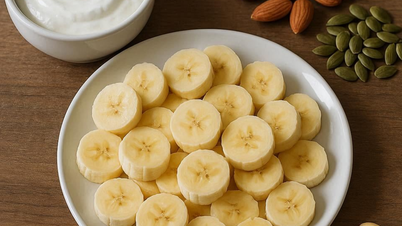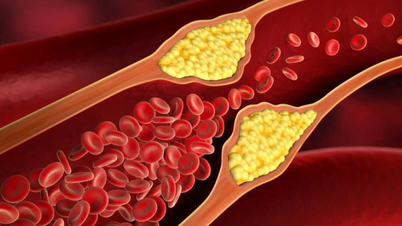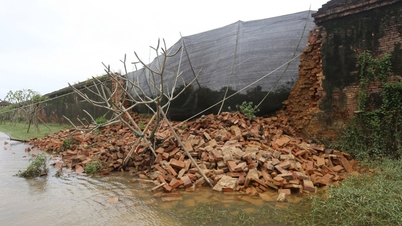Meritorious physician, PhD, MD Nguyen Thi Thu Huong, Nephrology - Urology Clinic, Nam Saigon International General Hospital said that preventing kidney failure is a persistent process combining controlling underlying diseases and maintaining a healthy lifestyle.
Good control of underlying diseases
Controlling underlying diseases such as hypertension, diabetes, gout, metabolic disorders and chronic glomerular diseases (such as IgA glomerulonephritis, nephrotic syndrome, etc.) plays an important role in reducing the risk of progression to kidney failure and protecting long-term kidney function. Specifically, factors that need to be controlled in preventing kidney failure include:
Blood pressure control
Stable blood pressure helps reduce pressure on the kidneys, preventing complications. You should check your blood pressure regularly and maintain it below 130/80 mmHg. To do this, you need to reduce the amount of salt in your diet, limit alcohol and tobacco, control your weight, and increase potassium-rich foods such as green vegetables and fruits.
Blood sugar control
This is a key factor for people who have or have a history of diabetes - one of the leading causes of kidney failure. Regular blood sugar monitoring helps detect abnormalities early and make timely adjustments.
To keep blood sugar stable, patients should divide their daily meals into smaller portions and avoid eating too much at once. At the same time, it is necessary to limit the consumption of sugar and fast-absorbing starches such as cakes, soft drinks, white rice, etc. to prevent sudden increases in blood sugar, which can cause silent and long-term kidney damage.

You should reduce the amount of salt in your diet and increase foods rich in potassium such as green vegetables and fruits.
PHOTO: LE CAM
Control uric acid and blood lipids
High levels of uric acid and blood lipids not only increase the risk of kidney stones and nephritis, but also have a negative impact on the cardiovascular system. Patients should have a balanced diet, limit foods rich in purines (animal protein, seafood), saturated fat and maintain regular exercise.
Building a healthy lifestyle
Increasing physical activity and building a reasonable diet are basic habits that help reduce the burden on the kidneys. Healthy people should maintain regular exercise for at least 30 minutes a day, while eating a healthy diet with fresh foods, low in salt, low in fat and drinking enough water.
For people with kidney disease or at high risk, adjusting the diet according to doctor's instructions such as reducing animal protein, limiting sodium and phosphorus will help slow the progression of kidney damage.
Limit alcohol and tobacco
Long-term alcohol use can damage the kidneys through metabolic disorders, chronic inflammation and loss of blood pressure control. Smoking damages blood vessels, thereby directly affecting the circulation that nourishes the kidneys.
Regular health check-ups to prevent kidney failure
Regular health check-ups help detect early signs of kidney-related abnormalities. In particular, people with risk factors such as high blood pressure and diabetes should have their kidney function tested at least 1-2 times a year. In addition, patients should avoid using painkillers or functional foods of unknown origin without a clear prescription from a specialist. Avoid drug abuse, which can affect kidney function.
"If there are any suspicious symptoms such as edema, pale skin, prolonged fatigue or urinary disorders, patients should go to a medical facility early for examination and timely treatment to avoid dangerous complications such as acute kidney failure, cardiovascular damage or serious electrolyte disturbances," Dr. Huong recommended.
Source: https://thanhnien.vn/suy-than-ngay-cang-tre-hoa-7-nguyen-tac-vang-de-bao-ve-than-khoe-185251106130300169.htm


![[Photo] Prime Minister Pham Minh Chinh receives the delegation of the Semiconductor Manufacturing International (SEMI)](https://vphoto.vietnam.vn/thumb/1200x675/vietnam/resource/IMAGE/2025/11/06/1762434628831_dsc-0219-jpg.webp)


![[Photo] Closing of the 14th Conference of the 13th Party Central Committee](https://vphoto.vietnam.vn/thumb/1200x675/vietnam/resource/IMAGE/2025/11/06/1762404919012_a1-bnd-5975-5183-jpg.webp)










































































































Comment (0)